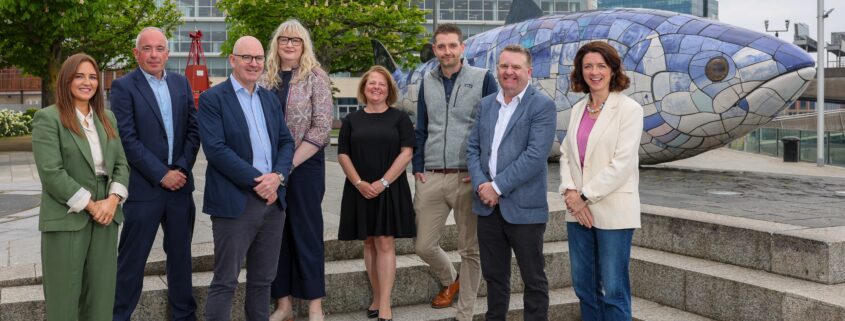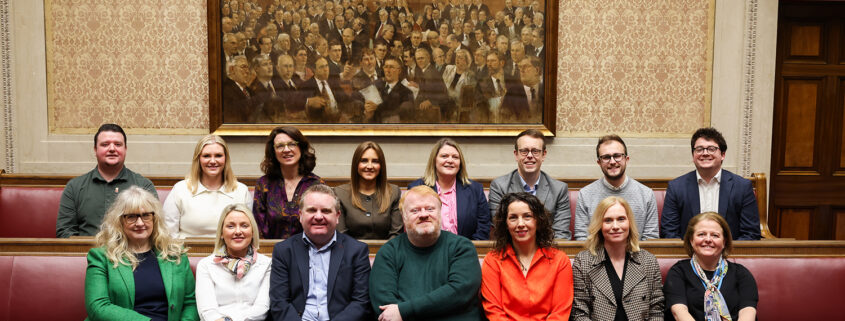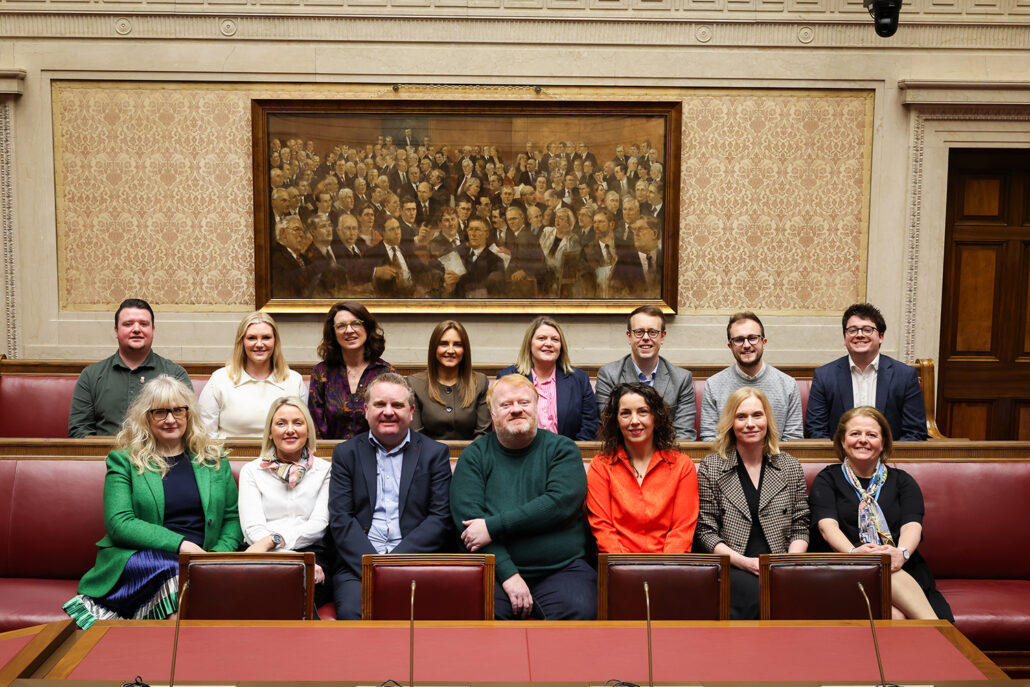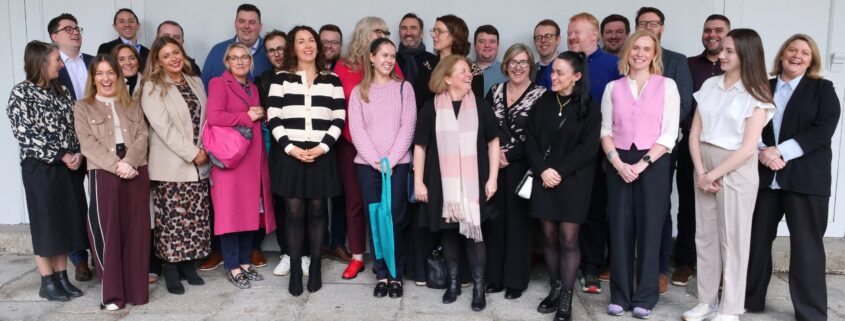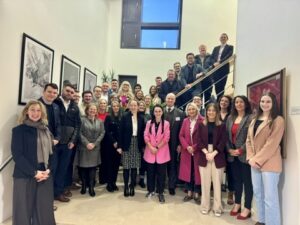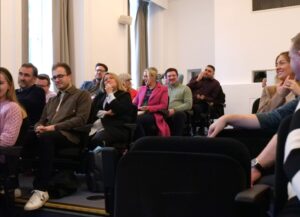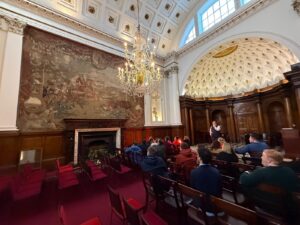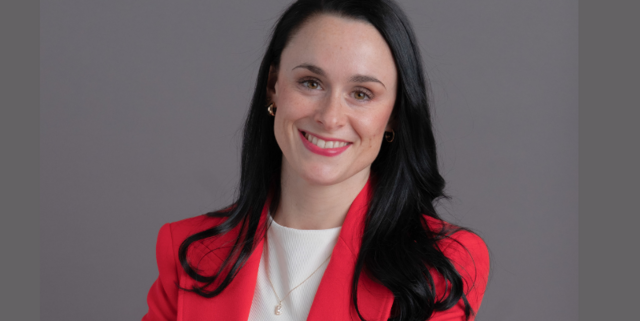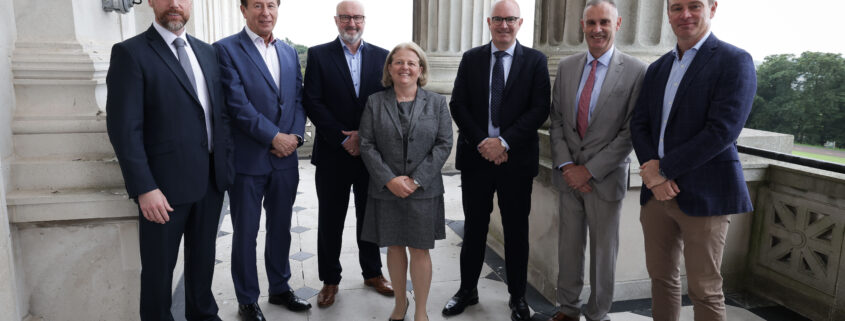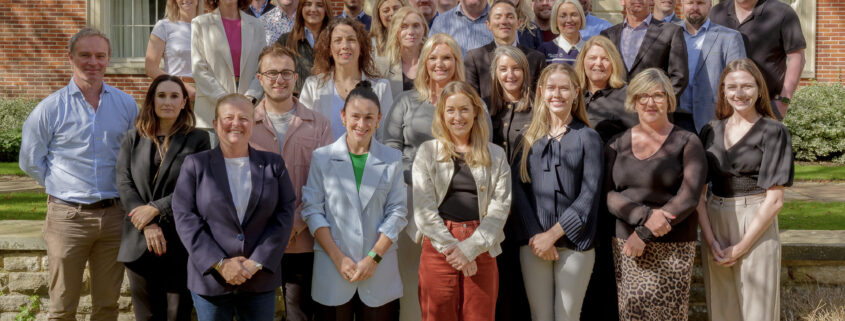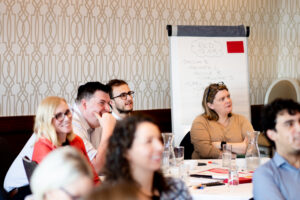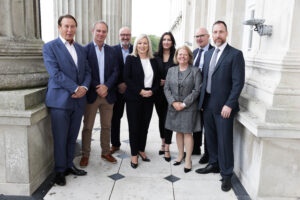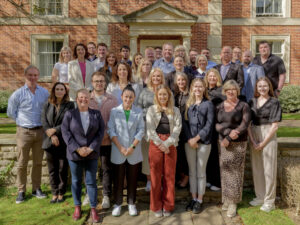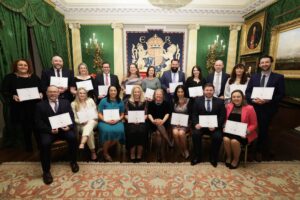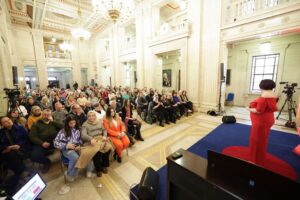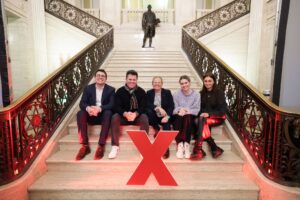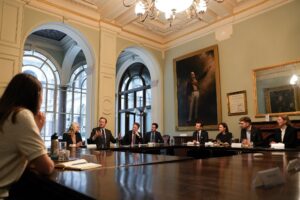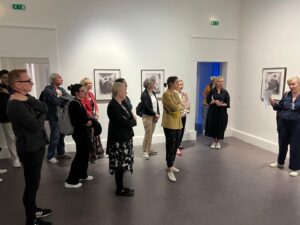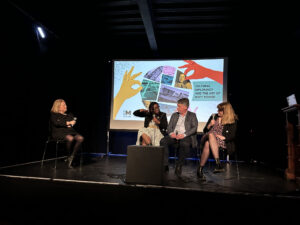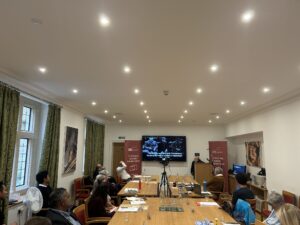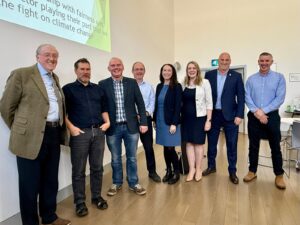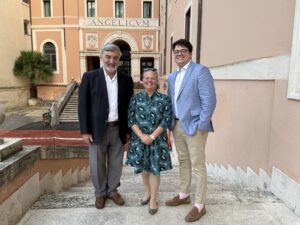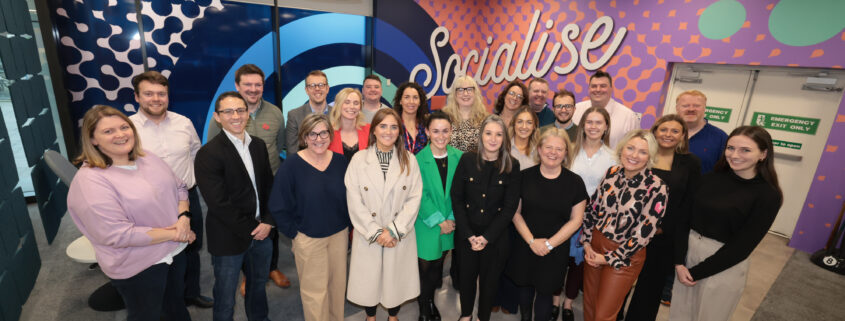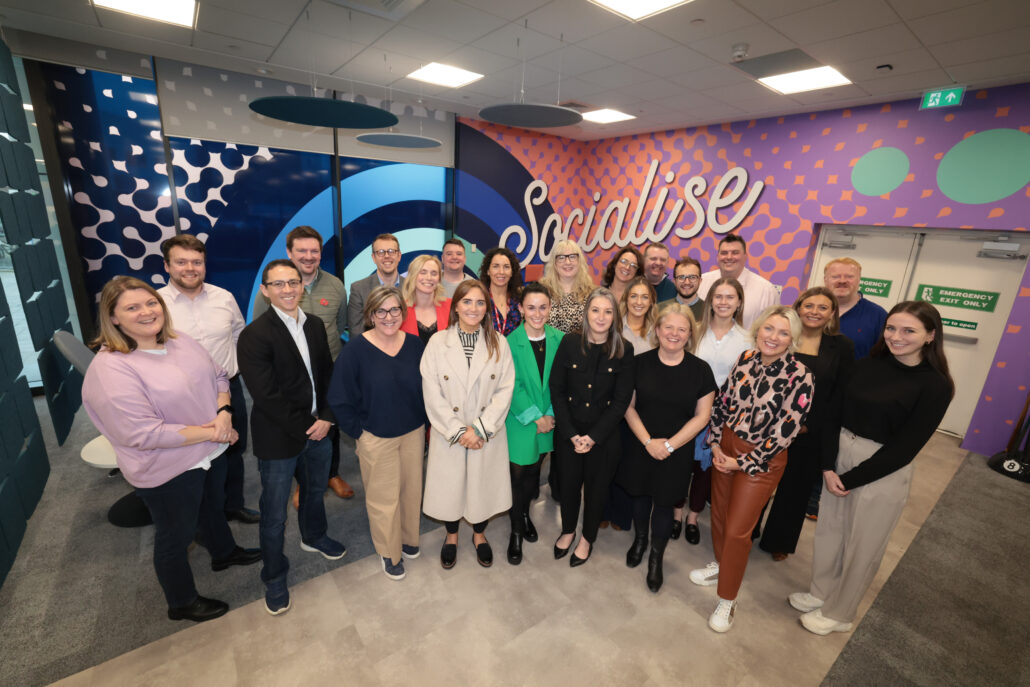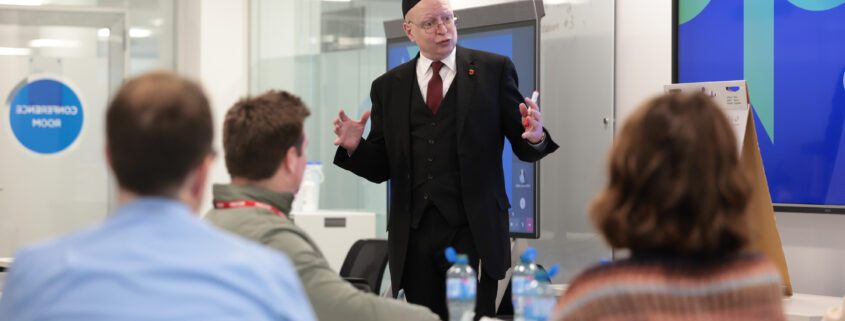Business leaders launch applications for Fellowship Programme
Businesses in Northern Ireland are supporting an initiative to give leaders from politics, business and civic society a unique opportunity to develop the skills needed to address the leadership challenges of today.
The Centre for Democracy and Peace has opened applications for its Fellowship Programme 2025-26 to address real-world challenges and equip Fellows with practical skills in complex decision-making, design thinking, and collaboration, which are essential for navigating today’s economic, political, and social landscape.
Now in its fifth year, and with almost 100 alumni, the Fellowship Programme offers immersive residential sessions in Oxford and Dublin and allows participants to gain experience in world-class thinking and global best practice.
Supported by leading organisations including Camlin Group, Fujitsu NI, FinTrU, NIE Networks, Ulster Carpets, the Irish Department of Foreign Affairs and Trade, the Irish American Partnership, and Allstate NI, the Fellowship reflects a shared commitment to investing in the sustainable peace and prosperity of Northern Ireland.
The programme is guided by an accomplished advisory board of senior business leaders who bring strategic insight, operational expertise, and a deep understanding of leadership in complex environments.
Together, they help shape a Fellowship experience grounded in real-world societal challenges, equipping participants with the adaptive thinking, collaborative mindset, and systems leadership needed to drive innovation, strengthen organisational resilience, and support long-term economic development.
By investing in the Fellowship, leading businesses are playing an active role in developing leaders capable of navigating complexity, generating innovation, and driving meaningful change across Northern Ireland.
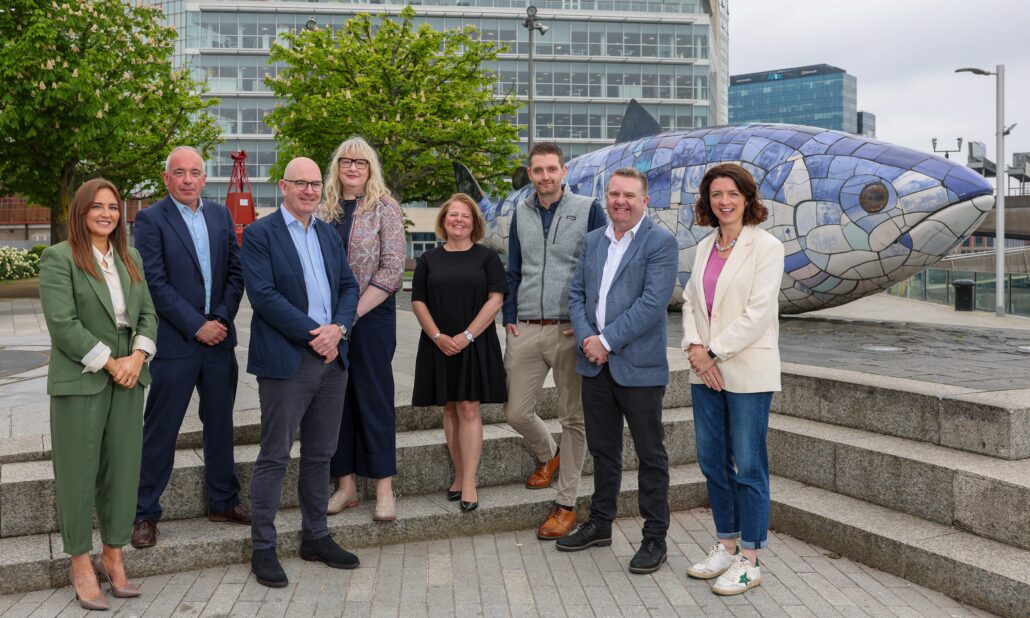
(L-R) Karen Gilgunn, Mencap NI, Derek Hynes, NIE Networks, Darragh McCarthy, FinTrU, Shauna Mageean, Northern Ireland Assembly, Eva Grosman, Centre for Democracy and Peace, Phillip Brett, MLA, Cahir Hughes, Electoral Commission, Róisín Finnegan, Independent Business Consultant.
Phillip Brett MLA, Northern Ireland Assembly Economy Committee Chair, and Programme Alumnus said:
“The Fellowship’s focus on systems thinking and entrepreneurial leadership aligns closely with key economic priorities, including the skills agenda. It offers unique value to Northern Ireland by supporting the development of confident, collaborative, and forward-thinking leaders.
“Taking part in the Fellowship was a truly transformative experience. It challenged my thinking, expanded my networks across all sectors, and strengthened my ability to lead with purpose. I would encourage anyone committed to building a better future for Northern Ireland to apply.”
Darragh McCarthy, Chair, Fellowship Advisory Board, added:
“The Fellowship is not just an investment in individual leaders, it’s an investment in the future of Northern Ireland’s business, civic, and political success. By bringing together ambitious leaders from across all sectors, the programme creates conditions for innovation, trust, and long-term collaboration.
“I look forward with great anticipation to seeing the unique talents and perspectives the future group of Fellows will bring, and how they will shape one another as leaders and our society.”
Applications for the 2025/26 Fellowship Programme are now open and will close on Thursday 5 June.
To apply or learn more, visit https://fellowship.democracyandpeace.org or contact fellowship@democracyandpeace.org.

